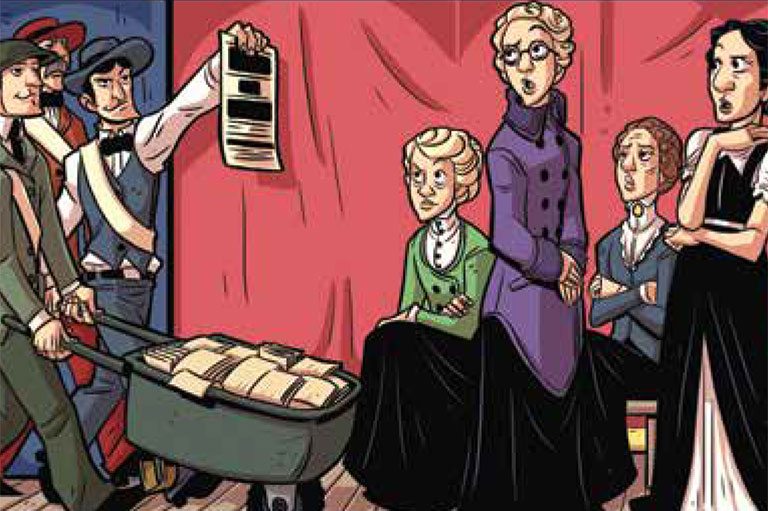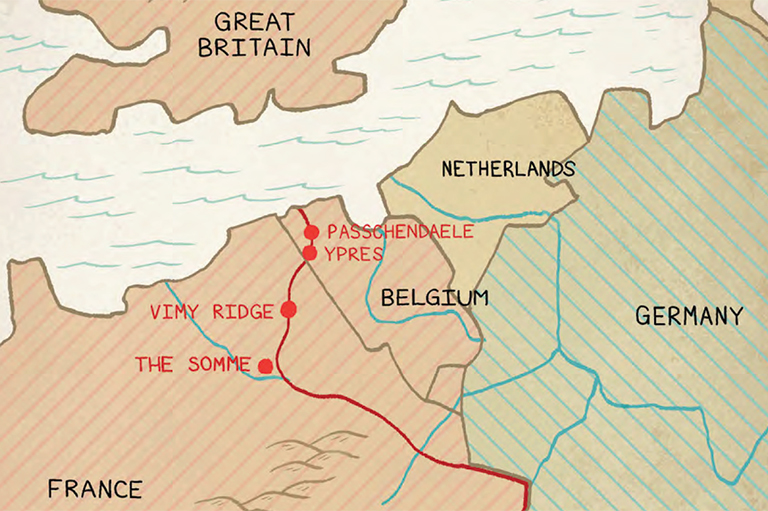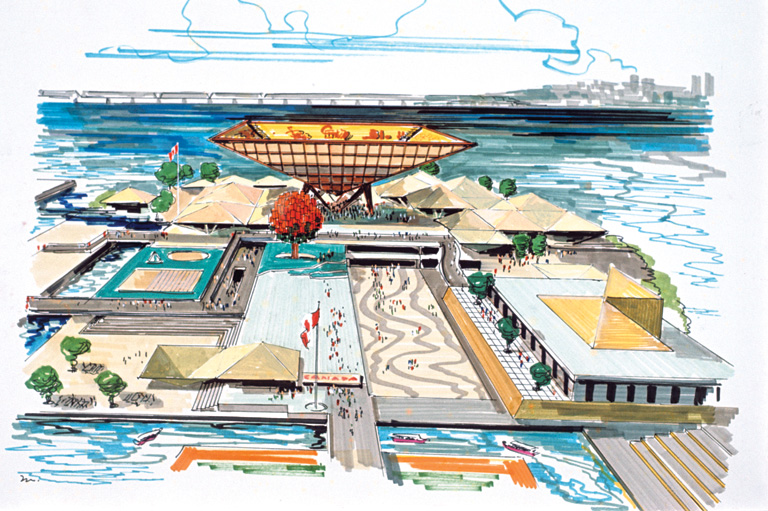We Are All Treaty People
Grade Levels: 9/10, 11/12
Subject Area: Native Studies, Social Studies, History, Geography, Civics, Social Justice
Lesson Overview
In this culminating Indigenous Studies history project, the student is required to choose one topic that they have studied in their course, gather sources (primary and secondary) and do a critical, in-depth review and analysis. The student’s findings are presented in any way s/he desires, from a creating a blanket to doing a PowerPoint presentation. An emphasis on personal meaning-making of the Treaty relationship is encouraged, thereby bringing history into the present, realizing that Treaties are “living documents” and as such, require us to act.
Time Required
Approximately 3 double-periods (1:40 min. X 3) or 5 hours.
Historical Thinking Concept(s)
This lesson plan uses the following historical thinking concepts: establish historical significance, use primary source evidence, identify continuity and change, analyze cause and consequence, take historical perspectives, and understand the ethical dimension of historical interpretations.
Learning Outcomes
Student will:
- Demonstrate the importance of the quote, “We Are All Treaty People” from both a personal and collective perspective
- Participate in a public creation
- Describe what they’ve learned in the process of doing their project
- Collaborate with community members (outside school) and share what they’ve learned
- Formulate solutions for controversial issues arising from their research
- Develop questioning, research and communication skills using primary and secondary resources
- Illustrate the disconnect between the Indigenous perspective of Canadian history and the non-Indigenous Canadians perspective of Canadian history
- Apply what they have learned about the Treaty Relationship historically, to their personal actions and their governments’ contemporary actions today
Background Information
Throughout the semester, students take part in a simulation covering Treaty relationships in Canada. They’re given roles as either the Indigenous peoples or the Government of Canada. They begin the simulation with pre-contact and the Fur Trade, and navigate their way through Treaty Negotiations, the Reserve System, the Metis Rebellion, Enfranchisement, the Indian Act, Indian Residential Schools, Intergenerational Trauma, the Sixties Scoop, Bill C-31, the Truth and Reconciliation Commission’s work, Land Entitlement, Resource Development, and many other topics. Themes relating to Worldview, Social Contracts, Identity, Stereotypes, Government, Values, Economics, Sovereignty, Decision making and Interdependence are also touched upon.
The semester ends by celebrating the resiliency and successes of Canada’s Indigenous peoples and highlights the paths that can be taken for healing. Together, students and the community acknowledge that they are all Treaty people and have a responsibility in understanding the truth of our history so that they can honour the past, be aware of the present and make positive changes for the future.
During the journey, students are challenged to dig deeper into history and uncover the myths that have been taught about the history of Canada. They are given opportunities to use both primary and secondary resources to compare and contrast stories and teachings about the past. Students have opportunities to hear first hand accounts of events and circumstances regarding Treaty Relationships and the history that is their legacy. They are confronted with their own scenarios and perceptions of what they believed happened throughout history and investigated opposing views in order to find ground in which the story could be revealed. Students are challenged to look at their own place in Canadian history and their responsibilities in terms of what it means to be a Treaty Person.
Note: This learning will be unsettling for some and for others, a rejuvenating experience as they uncover stories that haven’t been told, or have been hidden from history. Some students will find personal healing and others will be inspired to create social awareness and change. Some will start asking questions about their personal pasts and role in this history.
The Lesson Activity
Activating:
Begin each class by acknowledging and thanking the Indigenous peoples on whose territory your school is located. Students will prepare for this final project by choosing a topic or an issue and then do further research in a way that speaks to its relevance today. Possible topics of study may include:
- Intergenerational trauma
- Treaty Negotiations
- Reserve system
- Metis Rebellion
- Effects of Enfranchisement
- Impacts of the Indian Act
- Residential Schools
- Sixties Scoop and loss of Identity
- Bill C-31 and recovery of Identity
- Truth and Reconciliation and Healing
- Land Entitlement
- Resource Development
- Breaking Through Stereotypes
- Identity
- Traditional Ways of Knowing (Indigenous worldview)
Note: Students will be cognisant of the “presentness” of that topic/issue, so that Treaty responsibilities (especially on behalf of non-Aboriginal students) can be exercised today for the benefit of both Indigenous and non-Indigenous Canadians in the future.
Acquiring:
Students will decide if they want to do this project individually or in a group. Students are also free to invite a guest to the classroom if they feel any of the information needs to be given by an Indigenous Elder. Students must be clear in demonstrating to the teacher how the material they’ve covered correlates with historical thinking concepts.
Applying:
Students will demonstrate their understanding in a variety of ways: building a construction, PowerPoint presentation, Glogster, music video, painting or drawing, poem, story, storytelling, social justice project, medicine wheel, create a blanket, Memory Box, trailer for a movie, or any other that they choose.
Project Check List
- Choose a topic to study
- Gather resources (primary & secondary) to support the topic and answer key questions
- Choose a way to present the findings
- Complete a write-up to support the project
Materials/Resources
- Canadian Primary Sources in the Classroom
- Where Are the Children
- 100 Years of Loss
- Project of Heart
- National Centre for Truth and Reconciliation
- Discover Canada: The Rights and Responsibilities of Citizenship
- Office of the Treaty Commissioner
- Indian Act
- Canada In The Making
- Indigenous and Northern Affairs Canada
- Aboriginal Treaties
- Sixties Scoop
Themes associated with this article
Advertisement




